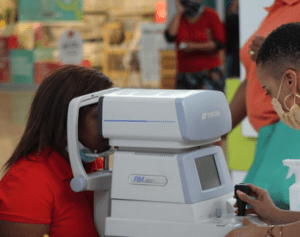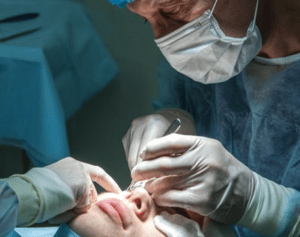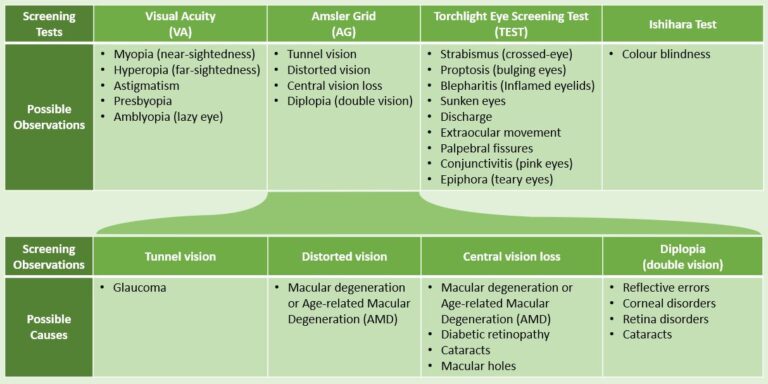Page Contents
As you have read in my previous blog post on health screening, you would agree that prevention is better than cure. Eye screening is one of the routine tests available in functional screening. It is helpful for picking up potential or existing functional declines of the eyes.
A healthy vision is very important for your personal safety and quality of life at all ages. It is also an important factor for mental wellness. Failing to take good care of your eyes could eventually lead to many eye complications, including blindness.
Are all eyes specialists the same?
Many people are confused over the differences between optician, optometrist, and ophthalmologist.
Optician

A professional who prescribes external wearable eyewear, such as eyeglasses, contact lenses, and most vision-correcting devices.
Optometrist

An eye doctor that provides primary medical eye care, including eye examination, diagnosis, medication prescriptions, and emergency eye care services.
Ophthalmologist

An eye doctor or surgeon who performs interventions for eye conditions such as serious eye diseases, advanced ocular problems, refractive eye surgery, and LASIK.
What tests are available in eye screening?
The 4 basic tests performed during an eye screening include:
- Visual Acuity (VA)
VA is the refraction assessment using a Snellen or Random E eye chart. It helps to identify reflective errors such as near-sightedness, far-sightedness, astigmatism, and presbyopia. - Amsler grid (AG)
AG detects visual disturbances caused by changes in the macula (part of the retina at the back of the eye). If you identify wavy or blurry of the straight lines, dark or blank patches, you may have macular degeneration. - Torchlight Eye Screening Test (TEST)
TEST inspects the structure, alignment and position of the eyes, which include eyelids, conjunctiva, sclera, cornea, iris, pupils, extraocular movements, palpebral symmetry, redness or growths on the conjunctiva and presence of any discharge. - Ishihara Test
Ishihara test is a colour vision test to detect the ability to differentiate colour, including red-green combination, blue-yellow combination, and complete colour blindness.
Possible complications identified from eye screening
From the 4 basic tests above, an optometrist or ophthalmic nurse can capture some observations. Further investigations can be ordered to investigate the root causes and underlying diseases.

Diet and lifestyle that care for your eyes
To improve and maintain the health of your eyes and vision, you can start from your diet and lifestyle.
Below are some diet suggestions that could be useful:
- Omega-3 fatty acids – fish, nuts, legumes, seeds.
- Vitamin A – carrot, pumpkin, tomatoes, bananas.
- Vitamin C – citrus fruits, sweet potatoes.
- Vitamin E – nuts, legumes, seeds, sweet potatoes.
- Zinc – beef, chicken breast, pork loin.
- Lutein and zeaxanthin – eggs, spinach, kale, cabbage, broccoli, egg yolks, sweet corn, red grapes.
- Reduce salt, sugar and unhealthy fats in your diet.
- Drink more water.
As for the lifestyle, do practise the following:
- Quit smoking.
- Reduce alcohol consumption.
- Have sufficient sleep and rest.
- Wear sunglasses to reduce glare.
- Reduce long exposure to blue light-emitting devices.
- Avoid reading or watching mobile devices in the dark or low light environment.
- Go for basic eye screening every year if you are 50 years and above.
Conclusion
As you age, regular screening is critical for early detection and timely treatment to prevent eyesight deterioration.
It ensures not only your safety and improves your quality of life, it also provides indications on your potential underlying conditions, such as diabetes, high cholesterol, hypertension, heart disease, and stroke, which all these could be the contributing factors to your eye problems. For more information, please visit the link here.
If you are now 50 and above, do not delay anymore, be sure to check out the eye screening services available in your local clinics and hospitals.
